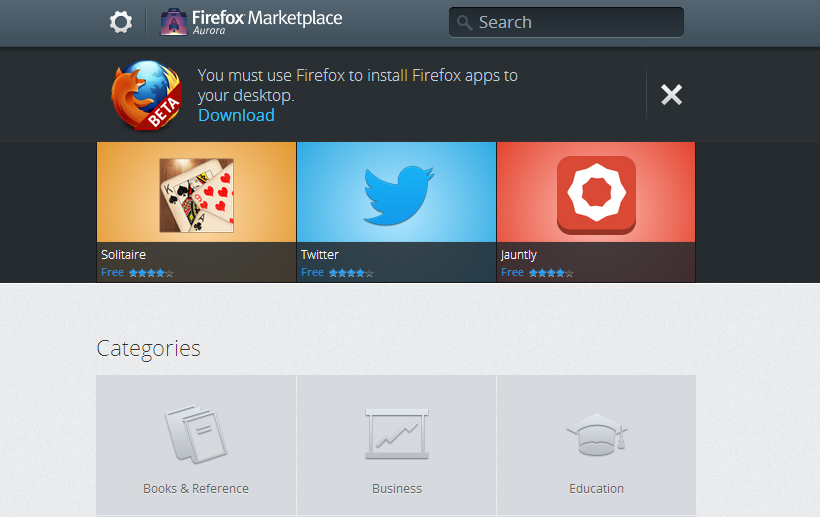Installable Web Apps Will Be the Next Tech Battleground
A coming wave of “installable Web apps” could make HTML5 the centerpiece of modern app development—but a battle is brewing over who will decide the format that becomes the industry standard.

“Packaged app” formats will let developers wrap applications built in HTML, CSS, and JavaScript as a traditional native download. Customers are unlikely to notice the difference, because while the apps still tap into their browser’s processing engine, they won’t be caged in a window that was designed for navigating the Web.
The dream for developers, when HTML5 has fully matured, is simple: cross-platform apps that work on any modern device, easy and fast deployment of updates, and, potentially, a direct line to billions of Internet users.
The W3C has proposed an open “Widgets” specification with features that should aid mass distribution, like localization for targeting different regions and digital signatures as a trust mechanism. By virtue of being built on open Web standards, the widget specifications are already compatible with certain smartphones, TVs, and even classroom whiteboards—but the W3C isn’t the only one trying to define the de facto Web app format.
Meanwhile, Google and Mozilla are working on their own packaged app initiatives. Both have their own fledgling HTML5 app stores, undoubtedly inspired by the success of Apple’s native app store.
To their credit, Mozilla promises an open API so indie developers can experiment with new ways to deliver from the Firefox Marketplace, which may stir innovation. Mozilla’s recent investment in dynamic app platform Everything.me could also be indicative of its ambitions for Firefox OS. It’s too early to gauge Google’s strategy, but it is quietly curating an impressive collection of Web apps, designed for its Chrome browser, in the Chrome store.
Bruce Lawson, a web evangelist for Opera, wishes the competitors would collaborate on one interoperable specification, and told me that the dozen or so proposed alternatives seem unnecessary.
“Why do they all have formats?” he said. “The answer is, of course, everyone wants to do it their own special way and encourage developers into their ecosystem. If you were cynical, you’d say ‘lock people in.’ But I’m not cynical.”
Neither Google nor Mozilla responded to my request for comment.
Perhaps I’m a bit more cynical. Free-market advocates might defend companies taking part in this kind of digital arms race, but the Internet always prospers when people work to the same standards. The collaborative effort on HTML5 proves this; by working to a common specification, browser vendors were left to compete on performance and implementation—user-facing factors that improve the overall experience.
There’s a chance that Web apps will be a lasting format, so it ought to live up to the ideals of the Internet. On the other hand, as XKCD explains, there may be no going back now.
Keep Reading
Most Popular
Large language models can do jaw-dropping things. But nobody knows exactly why.
And that's a problem. Figuring it out is one of the biggest scientific puzzles of our time and a crucial step towards controlling more powerful future models.
How scientists traced a mysterious covid case back to six toilets
When wastewater surveillance turns into a hunt for a single infected individual, the ethics get tricky.
The problem with plug-in hybrids? Their drivers.
Plug-in hybrids are often sold as a transition to EVs, but new data from Europe shows we’re still underestimating the emissions they produce.
Stay connected
Get the latest updates from
MIT Technology Review
Discover special offers, top stories, upcoming events, and more.